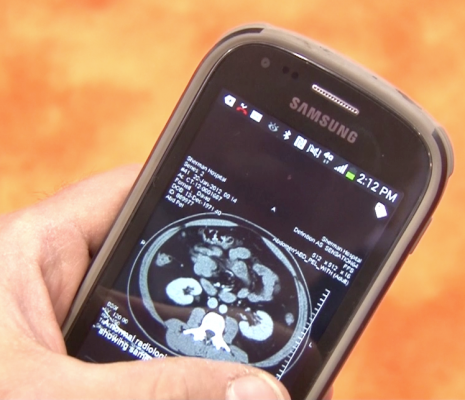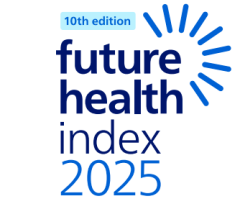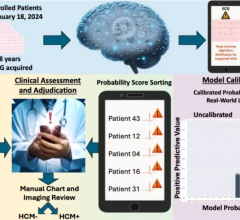
February 12, 2019 — Software company Pegasystems Inc. announced new survey data revealing the positive impact of quality patient engagement. Sixty-five (65) percent of consumers agree that communications from their doctor's office motivate them to take action to improve their health, and nearly half responded similarly regarding their primary health insurer. To continue this positive impact, the industry needs to understand how to best engage with individuals for better health outcomes, according to Pegasystems.
A Pega-commissioned survey of more than 2,000 U.S.-based consumers and more than 200 business decision makers (BDMs) of healthcare industry engagement programs gauged opinions regarding how well the industry is meeting consumer expectations. While BDMs and consumers were generally in agreement, BDMs had slightly elevated perceptions. Results also uncovered consumer readiness for new technologies as well as preferred engagement methods.
Nearly all BDMs believe they are succeeding in their engagement programs; however, only 35 percent of consumers feel highly valued by their doctor's office and only 20 percent feel the same about their primary health insurer. Additionally, while 50 percent of consumers believe their doctor is readily available, nearly one-fifth disagree or strongly disagree. Care providers in particular need to take note – nearly 80 percent of patients would find a new provider after a poor experience.
When it comes to collaboration, nearly one-quarter of consumers do not believe their insurer and doctor are closely connected. This is in direct contrast to what BDMs believed, with 93 percent claiming their organization works with all segments of the healthcare ecosystem to provide seamless experiences. Overall, BDMs must ensure their organizations not only provide optimal experiences for patients/members, but communicate with each other to reduce frustration throughout an individual's health journey.
Technology
Results revealed consumer openness to the usage of artificial intelligence (AI) when it comes to their health: Forty-two (42) percent of consumers are comfortable with doctors using AI for care decisions (29 percent are comfortable with insurers doing so). Also, nearly one-third (31 percent) are comfortable with insurers using AI-supported chatbots to answer questions online.
As for virtual care and data access, 55 percent of consumers are open to virtual appointments, 58 percent are willing to give doctors access to mobile health app data, and 60 percent would give doctors real-time access to information via connected devices (37 percent for insurers). To accommodate consumer demand, 86 percent of BDMs report currently exploring new technologies to engage members/patients and another 13 percent plan to within the year. Additionally, 77 percent of care providers already offer virtual appointments, while another 16 percent are building that capability today. With more than two-thirds of consumers reporting they track food and fitness habits on apps, organizations need to accommodate these new data sources, while also investing in technology to remain ahead of their competitors.
Human Interaction
When asked what channels are used most to communicate with consumers, 28 percent of organizations use email, with phone a close second (24 percent). But this isn't what consumers want, the survey found. Sixty-two percent of consumers prefer phone interactions with doctor's offices and 45 percent prefer the same from insurers. As for volume, nearly 30 percent of consumers want more communication from their doctor's office and nearly 20 percent want more from their insurer. While it's important to communicate with consumers on their channel of choice, this desire for increased communication and preference for phone interactions may indicate the industry has room for technological improvement to create better interactions via other channels such as online chat, web portal, messaging app, or text. As BDMs adopt new technology to accommodate innovation and consumer demands, they must keep quality interactions at the heart of every business decision.
"Overall, we're seeing positive trends in the healthcare industry when it comes to personalized patient engagement – including providers and payers – as well as the adoption of new technology, but there's still quite a bit of work to be done," said Kelli Bravo, vice president and industry market lead, healthcare & life sciences, Pegasystems. "Care teams – from insurers to doctors – need to ensure they are communicating effectively not only with patients but also with each other to create a positive impact on an individual's health outcome."
For more information: www.pega.com


 September 24, 2025
September 24, 2025 









